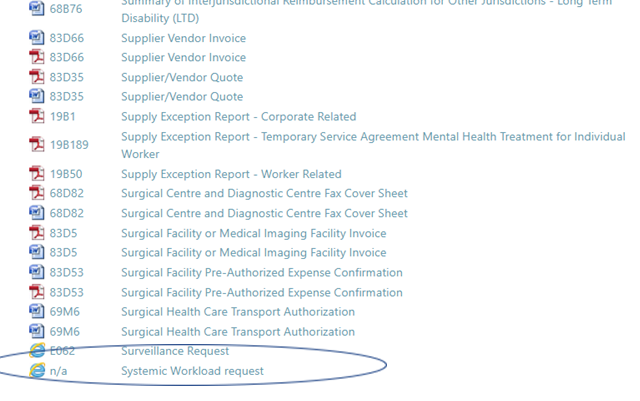Janice blazed a trail in all she did. Representing CEU through operation solidarity and our…
“SWRP” Form – How to get it submitted
The Systematic Workload Reporting Process (“SWRP”) goes like this:
- Meet with your manager.
- Meet with your manager as a group or individually to raise the workload issue and to discuss potential strategies to address the concerns raised. You may ask the Shop Steward of your jurisdiction to attend the meeting to provide support and guidance around the workload language in LOU B28 of the Collective Agreement, however you are not required to have union representation.
- Submit the SWRP Form within 30 days of meeting with your manager.
- If your meeting with the manager does not resolve your workload concerns submit a SWRP Form. This form must be submitted within 30 days of the meeting with the manager.
The SWRP online form is now available on the Forms and CMS library page of WSN

- The SWRP Form will be sent to the manager for review and additional comments.
- Next the director will review the form and will have the ability to provide additional comments.
- Within thirty (30) days of submission by the employee, copies of the completed form will be provided to the employee, manager, director, and Co-chairs of the Joint Workload Committee.
- The Systemic Workload Reporting Process form, once complete, is automatically sent to the following:
- the initiator (a bargaining unit employee)
- any associated bargaining unit employees named on the form
- the initiator’s manager
- the initiator’s director
- the Labour Relations Department
- the CEU President as Chair of Joint Workload Committee
- All information collected in the SWRP forms and process will be analyzed and reported on by the Joint Workload Committee.
The entire SWRP process is designed to be a collaborative, problem-solving approach to support proactive documentation and discussion of systemic workload concerns in a structured, problem-solving manner. We strongly encourage every member to submit a SWRP Form to document their workload issues.
Other strategies to address workload concerns and the associated stress can be through Workload Campaigns or by simply adopting some (or all) of the following tips:
- Only work your scheduled hours.
- If you are an A or S Type Employee, start on time and end your workday on time. If you are a B Type Employee, only work the hours for which you are paid in the week.
- No one should work for free by working beyond their scheduled day or beyond their designated work week hours.
- Take all breaks to which you are entitled.
- Do not skip morning, lunch, and afternoon breaks by working through or working while you eat.
- Log off your computer during your breaks and step away from your desk.
- Do not accept voluntary overtime (i.e., overtime which is offered but not required as per standby or other emergency provisions that may apply).
- Working overtime, while at least paid, increases your hours of work in the day/week lessening your ability to rest.
- Providing overtime work, voluntarily, also minimizes the impact of workload effects on the Employer. Overtime work solves the Employer’s problem of not having enough permanent staff.
- If there are overtime hours to be offered out, that means there is an ability to hire more regular staff i.e., the additional work hours exist, and the extra money exists.
- If you are unable to complete your given tasks by the set deadlines in a week, email your manager (and feel free to cc a Union Representative) and ask them politely to prioritize your work items.
- If all your work is urgent and it all cannot be done on time, then the manager needs to decide, and clearly communicate to you, the organization’s priority items.
- Emphasize the importance of your own mental health by utilizing supportive resources such as, psychology services.
- Each covered Member, and each covered dependent, is entitled to $3,600.00 per calendar year for psychologist(s) appointments. On average, this provides 10-12 sessions per year (assuming 1-hour appointments.
- You need not be in a mental health crisis to access the support of a psychologist. Psychology services can be invaluable to maintaining good mental health. EFAP services are also available if you exceed the yearly maximum or prefer their specialists.
- Schedule all your vacation time, or as much as possible, during the calendar year.
- Vacation time is a bargained benefit to which you are entitled to. It is to ensure all Members have a break from work to recover. Do not defer vacation by carrying over time to 2022 due to your workload. Vacation time, like daily breaks, is crucial to help you rest.
For guidance about meeting with your manager, or questions about the SWRP Form and process please reach out to your CEU Shop Steward, a CEU member on the Joint Workload Committee (Laura Snow; Kristy Child; Michael Hess; James Morrison; Mary Florence), or a CEU Business Representative for assistance. All of these people have received training on understanding LOU B28 as per the Collective Agreement and the SWRP online form, so that they may best support you.
